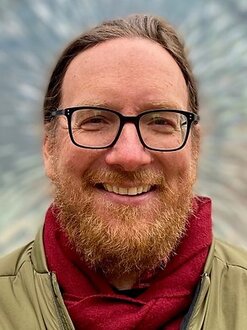
Contributor
Dr. Michael Hathaway is Professor of Anthropology, Associate Member of the School for International Studies, and the Director of SFU’s David Lam Centre for Asian Studies. A Guggenheim Fellow, his work has been supported by the Mellon Foundation, American Council
of Learned Societies, Social Science Research Council, National Science
Foundation, Social Sciences and Humanities Research Council, and Toyota
Foundation, among others.
His first research project examines global environmentalism and the
politics of Indigeneity. This research was based on multi-sited
fieldwork in rural and urban Southwest China. It explored how local
residents, Chinese scientists and expatriate conservationists forge new
constellations of meanings, practices, and forms of governance in
contemporary China. This work examines changing understandings of
nature, social categories, and power. It was published as Environmental Winds: Making the Global in Southwest China (University of California Press, 2013).
His second major project explores the global commodity chain of the
matsutake, one of the world’s most expensive mushrooms, following it
from the highlands of the Tibetan Plateau to the markets of urban Japan.
In it, he asks what happens when we imagine “world-making” not to be
capacity exclusive to humanity, but as a part of all organisms,
including the seemingly humble fungus? This work has culminated in a new
book, called What a Mushroom Lives For: Matsutake and the Worlds They Make, (Princeton University Press, 2022). It is the second volume in a trilogy, starting with Anna Tsing’s The Mushroom at the End of the World: On the Possibility of Life in Capitalist Ruins.
This project is part of the Matsutake Worlds Research Group, with Tim
Choy, Lieba Faier, Miyako Inoue, Shiho Satsuka and Elaine Gan. The team
explores the more-than-human social worlds this mushroom engenders in
Canada, the United States, China, and Japan.
Michael is currently working on two more major projects and seeking
interested graduate students to join his research teams. One of these
current projects, is an Indigenous-majority led collaboration with
Professors Aynur Kadir (Uyghur), Rick Colbourne (Anishinaabe) and Glen Coulthard (Yellowknives Dene), as well as Doctoral student Cheyanne Connell
(Dunne-Za Cree). It explores the rise of Indigenous networks in the
Pacific Rim as a new way to understand how the Indigenous movement
became global starting in the 1970s. The team explores the legacies of a
series of all-Indigenous delegations to China from Japan and from
Canada. These trips, virtually lost to the written record, proved
momentous, as Indigenous delegates returned to their home countries
inspired by what they experienced. They began challenging state
authority in unprecedented ways, crafting powerful texts that awakened a
generation of Indigenous and non-Indigenous people to the ongoing
colonial structures of society. What is perhaps least appreciated is how
going to China helped delegates to reimagine themselves as global
subjects who were connected to other Indigenous people, as part of what
was called the “Fourth World.” In other words, this was part of the
silent, often invisible work of fashioning “Indigenous people” as a
transnational political category.
By hosting and feasting, they quietly stitched together the fabric of
global Indigeneity, a category that was neither obvious nor
pre-existing, but took tremendous initiative and creative activity to
come into being. This perspective enlivens studies of Indigenous
world-making elsewhere, attending to actions that precipitated shifts in
consciousness and building relations across geographic and linguistic
divides.
The other current project works towards the decolonization of Western
science, and especially towards re-imagining forms of biological study.
The project challenges the overemphasis on competition as the driving
force of evolution and explores how alternative epistemologies might
open up new perspectives and insights in biological research.
